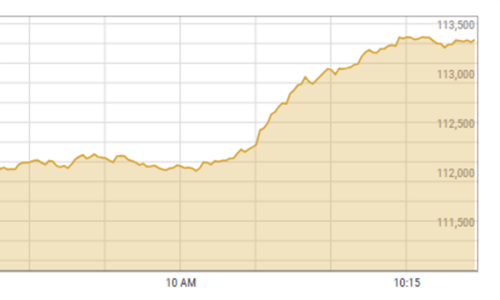Europe
The European Commission (EC) forecast gross domestic product growth of 1.3 for this year in the Euro Zone, down from 1.7 per cent previously when the EC saw no risk of recession in Europe. The EC forecast growth of 1.4 per cent for the broader EU, which includes Britain, Sweden, Denmark and several countries in the formerly communist eastern Europe, down from two per cent projected earlier.
Inflation is expected to average 3.8 in the EU and 3.6 per cent in the euro area this year following the continued strong rise in commodity prices. The figures are based on revised projections for the seven countries which together make up about 80 per cent of the EU’s GDP. It is calculated on the basis of updated projections for France, Germany, Italy, the Netherlands, Poland, Spain and the United Kingdom.
The Commission recently announced that Germany, Spain, and the UK economies would fall into recession this year. The German economy, the largest in euro zone, contracted 0.5 in the second quarter and the EC forecast negative growth of 0.2 per cent for the third quarter. Spain is forecast to record negative growths of 0.1 and 0.3 per cent in the third and fourth quarters, respectively. The UK economy is also expected to experience contractions of 0.2 per cent each in the third and fourth quarters of 2008.
The US economic slowdown has hurt European banks immensely as many European banks conduct a significant portion of their business in the US. Further, the slowdown in the US is spreading to Europe and the UK, and these countries are experiencing the same types of problems as in the US. Britain, Ireland, and Spain are witnessing a substantial contraction in their housing markets, which has pushed both sales and pricing into negative territory. This is particularly problematic for Spain and Ireland, where residential investment accounts for nine and 12 per cent of their economies, respectively, compared to five in Britain and four per cent in the United States. This is now spreading to other parts of the economy, with the result that GDP is expected to slow.
The continuation of the turmoil in the financial markets one year on, the near doubling of energy prices over the same period and the correction in some housing markets are having their impact on the economy. However, the recent fall in oil and other commodity prices and the easing up in the euro exchange rate have provided some relief. Output has started to fall in several advanced economies in the second quarter of this year, caused also in some countries by a downturn in the housing sectors. GDP contracted by 0.1 in the EU and by 0.2 per cent in the euro area.
In addition, the continued rise in commodity prices, the ongoing financial turmoil and surging consumer-price inflation have put a brake on domestic demand. The 15-nation euro region’s economy will probably stagnate this quarter after shrinking in the previous three months for the first time since the euro was introduced in 1999. The European Commission has already cut its growth outlook for the euro area for the rest of this year and predicted a recession for Germany, the region’s largest economy.
The EU forecast the euro-area economy will expand 0.1 per cent in the final three months of 2008 after an estimate of no growth this quarter. Both projections are down from earlier forecasts of 0.4 per cent growth for both periods. The EU also forecast a recession in the UK., which is outside the euro area. The German economy will probably shrink 0.2 per cent in the current quarter after contracting 0.5 per cent in the previous three months, and Spain’s economy will also shrink in the third and fourth quarters, according to today’s projections.
Outside the euro area, the commission sees U.K. output ‘’contracting slightly’’ in the second half of the year. Economic activity has slowed down considerably’’ in recent months. With the economy shrinking by 0.2 between July and September and a further 0.1 per cent by the end of the year, the Confederation of British Industry (CBI) predicted a “shallow recession.” The CBI cut this year’s growth forecast from 1.7 to 1.1 per cent and said unemployment would likely top two million next year. It also downgraded the 2009 growth forecast by one per cent, predicting the British economy will grow just 0.3 per cent over the 12 months - the lowest rate since 1992. Inflation has risen sharply this year, from 2.1 in December, to 4.7 per cent in August.
Over the past year our forecasts for economic growth have been shaved lower and lower as the UK economy continues to struggle with the twin impact of higher energy and commodity prices and the credit crunch. Lehman Brothers’ bankruptcy, which could put as many as 4,000 workers in London’s Canary Wharf out on the street, is another blow to a fragile UK economy that is heavily dependent on the financial services sector and already teetering on the brink of recession. A shake-out of highly paid jobs in such a dynamic sector will send a shudder of anticipation across other sectors dependent on investor and consumer sentiment.
According to the German Economic Minister, the US financial crisis will hit growth in Europe and output in the continent’s biggest economy would be “significantly” less than hoped in 2009. The figures are getting worse. No-one can yet really say just how bad they will be. But of course this crisis in the United States will have an effect on growth. The German government would stick to its forecast of 1.7 growth this year but warned that its 1.2 per cent forecast for 2009 would have to be cut “significantly.”
Germany?
As a result of the global financial crisis, all major German economic institutions have lowered their growth forecasts for 2008, with a few even warning of a coming recession that could hit Germany in 2009. Germany’s banks also have been affected. According to a German weekly Europe’s biggest economy would slash its 2009 growth forecast to 0.5 from the previous 1.2 per cent estimate. But the German government has termed the report as only speculation. There is not yet an official forecast. The government maintained its estimate of 1.7 per cent economic growth this year, despite the doubts of many economists who point to a slowdown in exports and higher inflation.
Meanwhile, the European Central Bank’s chief economist has predicted that Germany would go through a period of weaker economic growth, the duration of which will depend on the extent of the repercussions from the (financial) shockwave coming from the United States. The head of the German Industrial Federation is also of the view that for the moment the financial crisis had not caused any serious problems for the German economy. But he warned that this could change.
Despite official statements of reassurance, Germany’s economy will take a beating because of the US financial crisis. Germany’s credit institutions have lent bankrupt US investment bank Lehman Brothers only “manageable” amounts, and, unlike the United States, Britain and Spain, Germany is not suffering from a real estate crisis. But the finance market, after all, is more about psychology than outsiders may think. The current financial crisis without doubt is the largest market risk for the German economy. However, its impact could be limited.
The current situation is also less favourable for consumer prices than anticipated in the December 2007 forecast. In the first quarter of 2008, consumer price inflation (as measured by the Harmonised Index of Consumer Prices (HICP)) was just as high as in the final quarter of 2007, at an annual rate of 3.1 per cent. The rate in the first quarter was 0.2 percentage point higher than forecast in December 2007. This was largely the result of sharply rising energy prices as well as a less favourable trend in food prices.
Most German economic experts back the German government’s cool-headed outlook. The head of Germany’s central bank is of the opinion that Germany’s financial system could withstand the attacks coming from across the Atlantic, as the German financial system is stable, and its resistance to adverse shocks has markedly improved in the past few years. Meanwhile, export activities -- Germany’s strongest economic asset -- slowed in July, with German business confidence in August declining to a three-year low.
As the world’s largest exporter of goods, Germany is exposed to its trading partners’ woes and faces a sharp slowdown in export growth. A Citigroup economist expected export growth of 4.7 in 2008 after some eight per cent in 2007, slowing further to two per cent at most in 2009. An end to the export boom that has long underpinned German prosperity leaves the country’s economy, despite its relatively sound fundamentals, facing the prospect of several quarters of low or negative growth.
Overall, consumer price inflation could moderate to just under two per cent in the course of 2009 provided no further adverse factors emerge. This corresponds to an average annual inflation rate of 2.2 per cent in 2009. As for 2008, the revision for 2009 is due almost exclusively to higher crude oil prices. Excluding energy, the annual inflation rate projection, at 1.6 per cent in 2009, is largely unchanged from the last forecast. The slight flattening compared with 2008 is due solely to the weaker price trend for food.
However, higher rates of inflation are expected for industrial goods (excluding energy) and services in 2009, mainly reflecting greater wage cost pressure.













































Dear visitor, the comments section is undergoing an overhaul and will return soon.